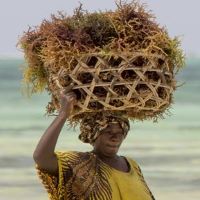

AquaInvest Platform
Authors
Tags
- AgTech (1)
- Seaweed farming (17)
- Gender (3)
- Research (1)
- Biodiversity (1)
- Guidelines (1)
- Seaweed (24)
- Fishery (8)
- Environment, Disaster Risk, and Climate Change (1)
- China (1)
- Region - East Asia and Pacific (2)
- Agriculture (17)
- Agriculture Data Platform (1)
- Korea (4)
- Ecosystem Services (3)
- Policy and Regulations (1)
- Climate Change Adaptation (4)
- Climate Resilience (5)
- Food Safety (3)
- Africa (2)
- Mariculture (21)
- Food Security (8)
- Policy - Food Security (1)
- Gender Equality (2)
- Blue Economy (31)
- Agribusiness (12)
- Climate Change (5)
- AFR Region (1)
- Environment (13)
- Policies and Legislation (2)
- Aquaculture (40)
- Indonesia (1)
- Nutrition & Diets (1)
- women (1)
Blog » Shaping investment guidelines for sustainable aquabusiness development – a work in progress
Shaping investment guidelines for sustainable aquabusiness development – a work in progress
Authors: Ruth Garcia Gomez, and Julie Mollins
As aquatic food consumption increases to meet demand from population growth and dietary preferences, so does recognition that the sector has a key role to play in fulfilling nutritional needs.
Over the past 60 years, the amount of aquatic food consumed has grown five times from 28 million tonnes in 1961 to 158 million tonnes in 2019, according to the Food and Agriculture Organization of the United Nations. Aquaculture production has grown significantly over the past two decades as production and technology advances have enabled the sector to increasingly meet global demand for seafood products. In 2020, aquaculture production reached 122.6 million tons, with a total value of $281.5 billion. It represents more than 57 percent of the 214 million tons produced by the fisheries sector.
Despite this exponential increase, investments in the aquaculture sector have been limited by a lack of accurate and current analytical data. Poor risk assessments of the sector and its main stakeholders have also curtailed investment potential.
To address these shortcomings, the AquaInvest Platform, which is funded by the PROBLUE Trust Fund led by the World Bank Group, is creating “Guidelines for Sustainable Aquabusiness Development.” The guidelines, which are being produced through a transparent and inclusive process, will contain representative case studies from a broad cross section of regional, species and production systems. They will feature examples of investment success stories and challenges, demonstrating limitations and revealing lessons learned.
The guidelines are being produced in collaboration with Advance Africa, a consultancy company with extensive experience in aquaculture investment and strategic planning. Slated for completion by mid-2024, a validation and dissemination process will engage key aquaculture stakeholders worldwide.
Another key element under investigation is the essential role some types of aquacultures can play in the provision of ecosystem services, as well as in the maintenance, conservation and enhancement of aquatic biodiversity and aquatic ecosystems. In addition, the aquaculture sector contributes to climate change adaptation and mitigation. The cultivation of filter-feeding species, including fish and mollusks, seaweed and algae can improve water quality parameters – through bioremediation – reduce ocean acidification and increase dissolved oxygen levels in coastal areas. They also minimize eutrophication, improving aquatic habitats for wild species establishment around farmed areas.
As a constantly evolving “living document,” the guidelines will contain operational and practical information on the following key components:
i) Elements required for a vibrant aquaculture investment climate
ii) Key considerations for aquaculture developers
iii) Roles of public and private sector in promoting aquabusiness development
iv) Identifying candidate species, sites, and production systems
v) Critical planning activities and analytics
vi) Identifying suitable culture environments for the long-term viability of aquaculture in the face of climate change